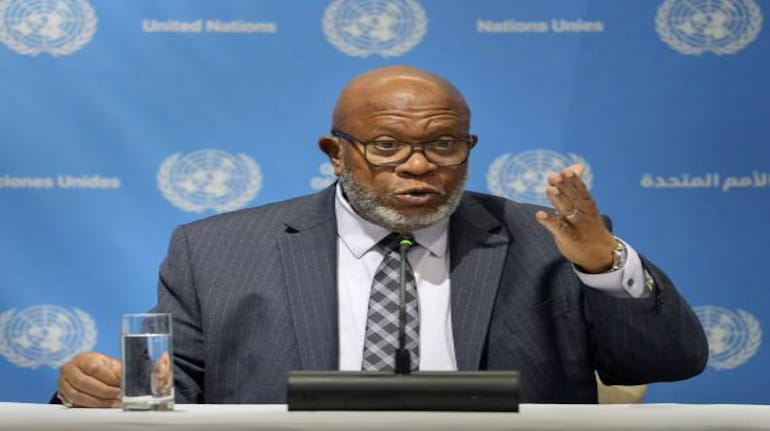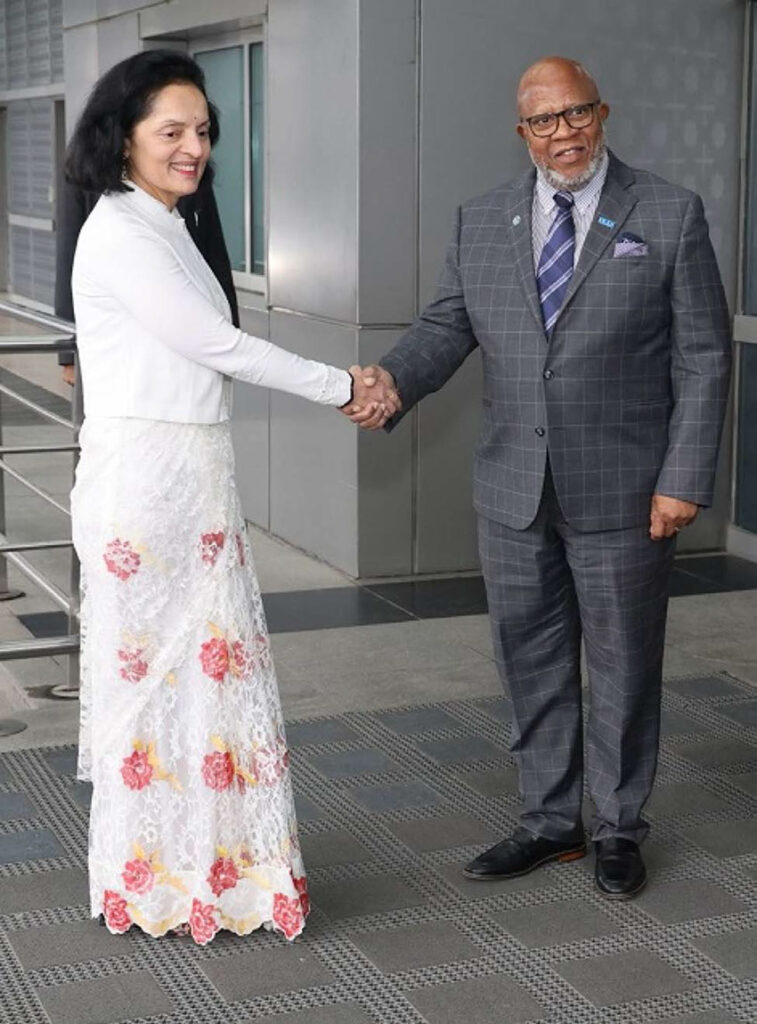UNGA President hails India’s digitalisation and infrastructure investment
By R. Anil Kumar
- United Nations General Assembly (UNGA) President Dennis Francis has lauded India’s use of digitalisation that has helped achieve financial inclusion and poverty reduction, underlining that this gives the country a “comparative advantage” and its lessons can be shared with the global community
- India can alleviate poverty and bring people into the formal economic system through the use of a handset and a digitalisation model
- The UN leader lauds India’s use of digitalisation to alleviate poverty and bring millions of people into the formal economic system “simply through the use of a handset and a digitalisation model”
- He underscored that digitalisation is important because it is “productive, it drives cost down, makes economies more efficient, makes things cheaper”
- Francis cites the example of digitalisation helping Indian women, and farmers across the length and breadth of the country and in far-flung places to negotiate their prices, deal with banks and make payments without having to leave their homes, farmlands or areas
- Francis stresses the need for building infrastructure sustainably in the current times of extreme climate events
- During the visit, his interactions with government officials, civil society members and think tanks focused on issues such as sustainability, multilateralism, accessibility, and digital public infrastructure
UNITED NATIONS, April 7. UN General Assembly President Dennis Francis has commended India’s effective utilisation of digitalisation, citing its significant contributions to achieving financial inclusion and reducing poverty. Francis highlighted that this accomplishment provides India with a “comparative advantage” and suggested that the lessons learned could be beneficially shared with the international community.

Francis, President of the 78th session of the UN General Assembly, said, “Let me say first of all that since I’ve been to India, every time I think of India, I think ‘Incredible India’. And I mean this in all earnest; And I saw it when I was there. The specific example to which I can refer is India’s use of digitalisation.”
Furthermore, he also mentioned the nation’s tourism slogan, ‘Incredible India.’ Francis had visited India from January 22-26 this year as part of an official visit. During his stay, he engaged in a bilateral meeting with External Affairs Minister S Jaishankar in New Delhi and also toured Jaipur and Mumbai.
Digitalisation efforts in alleviating poverty
During Francis’ interactions with government officials, civil society members and think tanks, he focused on sustainability, multilateralism, accessibility, and digital public infrastructure.
The UN leader lauded India’s adoption of digitalisation as a means to alleviate poverty and integrate millions of individuals into the formal economy, stating that it can be achieved “simply through the use of a handset and a digitalization model.”
Additionally, he emphasised the significance of digitalization, highlighting its productivity, cost reduction capabilities, efficiency improvements, and its role in making goods and services more affordable.
He also highlighted the role of digitalisation in helping Indian women and farmers in far-flung places to negotiate their prices, deal with banks and make payments, from any place.
“India can alleviate poverty and bring people into the formal economic system through the use of a handset and a digitalisation model. Digitalisation is productive, it drives cost down, makes economies more efficient, makes things cheaper,” Francis explained.
Economic growth and Infrastructure
Francis also said that the infrastructure plays a pivotal role in stimulating economic growth in any nation, as it generates significant demand for materials, labour, and resources, thereby creating employment opportunities.
“I noted when I was in India recently, and I was really quite impressed with this – the extent of investment being made in infrastructure in India, not just highways but even rail and monorails,” he said.
“If the infrastructure is built in a sustainable way, if it is resilient and can therefore withstand external shocks and stresses, it means that the economy is able to bounce back more quickly from that event, less jobs are lost and it requires less in the way of investment to get things working and moving again in the economy,” he added.

Moving Ahead
Francis is believed to convene the UN’s first-ever ‘Sustainability Week’ April 15-19, at the world body’s headquarters. It is believed that the seminar will showcase events focused on sustainability in sectors such as tourism, infrastructure connectivity, transport, energy and debt, among others.
The seminar is expected to be held in September 2024 during the high-level General Assembly session.
Furthermore, “The aim of the seminar is to unleash progress across the 2030 Agenda towards a more sustainable future – as we also ready ourselves for the Summit of the Future,” Francis concluded.
Last year, India’s Permanent Representative to the UN Ambassador Ruchira Kamboj highlighted at the world body the impact of financial inclusion on the social and economic empowerment of people in India.
She had noted that in 2009, only 17 per cent of adults in India had bank accounts, 15 per cent used digital payments, one in 25 had a unique ID document, and about 37 per cent had mobile phones.
These numbers grew exponentially and today, tele density has reached up to 93 per cent, over a billion people have a digital ID document, and more than 80 per cent have bank accounts.





